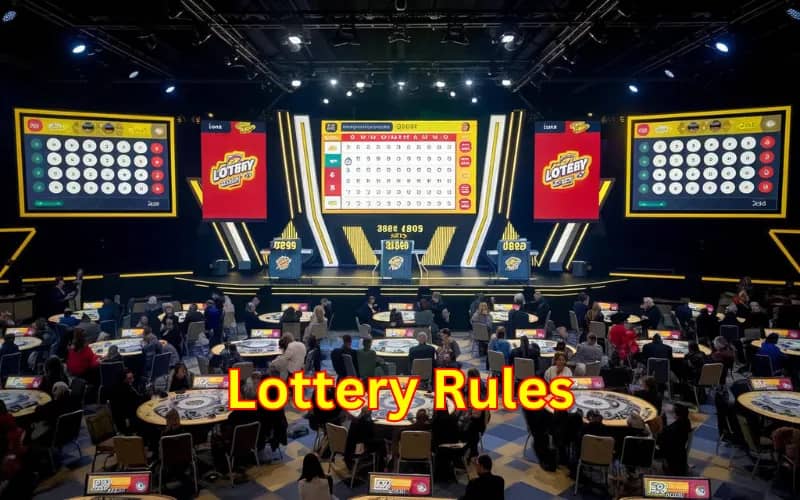Lotteries have long been a popular form of entertainment, with the potential for life-changing rewards. While millions of people worldwide participate in lotteries daily, not everyone is familiar with the essential lottery rules that govern these games. Understanding these rules is crucial for safe, fair, and informed participation. This guide will walk you through the key lottery rules and regulations you need to know, ensuring a smooth experience as you navigate the world of lotteries.
What Are Lottery Rules?
Lottery rules are the specific guidelines and regulations that outline how lotteries operate. These rules vary from country to country and sometimes from state to state, but they share common elements designed to maintain fairness, protect participants, and ensure legal compliance www bhutan lotteries com. Adhering to these rules is critical, as violations can lead to penalties or forfeiture of winnings.
Whether you’re a seasoned player or a newcomer, understanding lottery rules can help you make informed decisions and improve your chances of success.

Eligibility to Participate
The first set of lottery rules you must consider is eligibility. In most jurisdictions, participants must meet certain criteria to enter a lottery. Generally, these include:
- Age Restrictions: Most countries set a minimum age limit for lottery participation, usually 18 or 21 years old, depending on the country or state.
- Residency Requirements: Some lotteries are only open to residents of certain regions. International players should be aware of whether they’re eligible to participate in lotteries outside their country of residence.
- Legal Status: In many countries, individuals with a criminal record, especially related to gambling or fraud, may be disqualified from playing.
Make sure you verify your eligibility before buying a ticket to avoid any legal issues.
How to Play: Basic Lottery Rules
While each lottery has its unique set of instructions, there are general lottery rules that apply across the board:
- Ticket Purchase: A lottery ticket is your entry into the game, and it must be purchased from an authorized retailer or platform. Ensure that the ticket is valid, and always keep it in a safe place. Without the ticket, claiming winnings can be nearly impossible.
- Number Selection: In most lotteries, players select a set of numbers from a predetermined range. For example, in a 6/49 lottery, you will choose six numbers from a range of 1 to 49. Some lotteries also offer “quick pick” options where the system automatically selects numbers for you.
- Draw Schedule: Lotteries have specific draw schedules—weekly, bi-weekly, or monthly. Ensure you are aware of the date and time of the draw to check your numbers promptly.
- Claiming Prizes: Each lottery has a time limit for claiming winnings, ranging from days to months. If you miss this deadline, you may forfeit your prize, regardless of the amount. Lottery rules around claiming prizes often include presenting the original ticket and proof of identity.

Types of Prizes and Payouts
Lotteries offer various types of prizes, ranging from small amounts to massive jackpots. The lottery rules governing payouts can vary, but generally, they fall into two categories:
- Fixed Prizes: These are set amounts for certain combinations of numbers. For example, matching three out of six numbers might win you a fixed amount, such as $100.
- Jackpot Prizes: Jackpots grow as more people buy tickets. If no one wins the jackpot in a draw, the prize rolls over to the next draw, increasing the amount.
In many jurisdictions, winners must decide whether to receive their winnings in a lump sum or as an annuity spread over several years. Carefully review the lottery rules before making this decision, as tax implications may differ based on your choice.
Taxes and Lottery Winnings
One of the most critical lottery rules to understand is taxation on winnings. In many countries, lottery winnings are subject to taxation. lottery casino india The tax rate can vary depending on the amount won and the country in which the lottery is held.
For example:
- In the United States, federal taxes can take a significant portion of your winnings, and state taxes may apply as well.
- In the UK, lottery winnings are typically tax-free.
Check the lottery rules in your region or consult a financial advisor to understand the tax implications of your winnings.
Responsible Gaming and Lottery Rules
While lotteries can be fun and exciting, it’s essential to engage in responsible gaming. Many lottery operators include responsible gaming guidelines in their lottery rules, urging players to set limits on how much time and money they spend on lottery games. Remember:
- Don’t Chase Losses: It’s easy to get caught up in the excitement of trying to win back lost money. However, this can lead to compulsive gambling, which is dangerous.
- Set a Budget: Always determine how much you can afford to spend on lottery tickets without impacting your financial well-being. Stick to this limit.
Most lotteries also provide resources for individuals who may be struggling with gambling addiction. Understanding these lottery rules can help you play responsibly and enjoy the game without negative consequences.
Scams and Fraud Prevention
Unfortunately, lotteries are often targeted by scammers who try to exploit unsuspecting players. Familiarize yourself with lottery rules regarding fraud and scams to protect yourself. Common red flags include:
- Unsolicited Winning Notifications: If you receive a message claiming you’ve won a lottery that you didn’t enter, it’s likely a scam. Real lotteries don’t notify winners this way.
- Requests for Personal Information or Payment: Never provide sensitive personal details or send money to claim a prize. Legitimate lotteries don’t require fees to release winnings.
Review the official lottery rules on the operator’s website to ensure you are dealing with an authorized game and can spot fraudulent activity.
Conclusion
Understanding the lottery rules is essential for safe and informed participation. 82 lottery apk download. Whether it’s eligibility criteria, how to play, claiming prizes, or managing taxes, knowing these guidelines will help you enjoy the experience while minimizing risks. Follow the official rules, play responsibly, and most importantly, have fun!







